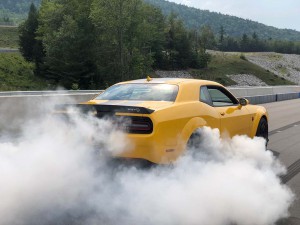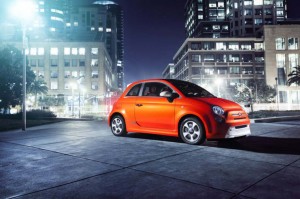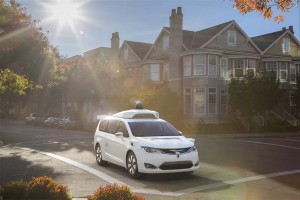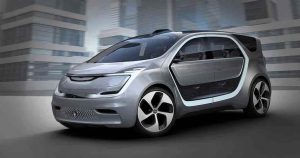Not all that long ago, former Fiat Chrysler CEO Sergio Marchionne was asking potential customers not to buy the automaker’s all-electric Fiat 500e because it lost too much money on every one of them. Just months before his unexpected death, Marchionne began to shift his position on battery power but FCA has remained an industry laggard.
That’s about to change, or so says Micky Bly, the Italian-American automaker’s new global powertrain chief. In an exclusive interview with TheDetroitBureau.com, he promised that FCA will try to reposition itself as one of the industry’s leaders in electrification “over the next 12 to 18 months.”
“We’re not leaders now,” said Bly, who was a pioneer in the battery-car space while working at General Motors, “but we will be soon.”
Exactly what is in store, Bly wouldn’t say, stressing that Fiat Chrysler doesn’t talk about future product. But several FCA sources, as well as some well-placed outsiders, gave some solid hints as to what is in the works. And that covers a broad gamut of the company’s products, from economy to luxury cars, from people-movers all the way up to some of its highest-performance offerings.
Chrysler hasn’t completely steered clear of battery power. The all-electric Fiat 500e made its debut during the 2013 model-year. And though Marchionne seemed to be speaking half in jest when he asked consumers not to buy it – because it cost $10,000 more to build than Fiat could sell it for – potential buyers took him seriously, demand barely registering as an asterisk on the sales charts. FCA followed up three years later with the Pacifica Hybrid, which is actually a plug-in, rather than a conventional hybrid. And 2019 saw the launch of FCA’s Jeep Wrangler with a “mild,” or 48-volt hybrid system.
But these mark just the beginning, it seems, with FCA expected to roll out an array of products that will include mild and conventional hybrids, as well as more advanced PHEVs and full battery-electric vehicles, or BEVs.
There’s still no clear indication consumers are demanding electrified products, said Bly, especially in the U.S., but the need to move forward, anyway, is driven by two words: “government compliance.” Automotive engineers proved unexpectedly good at upping the efficiency of the internal combustion engine, he said, “but now, we’re at an inflection or a tipping point, or whatever buzzword you want to use. You can’t get much more efficiency out of a gasoline engine.”
Tough new regulations have led to explosive growth of plug-based vehicles in China, while demand in Europe for electrified vehicles is also rising fast. As for the U.S., even if the Trump Administration rolls back the Corporate Average Fuel Economy, or CAFE, standards, Bly expects that FCA and its rivals will still need to turn to battery-based drivetrains moving forward.
Meanwhile, he stressed, it is no longer effective to craft different drivetrain technologies for individual markets. FCA needs a broad and cohesive global approach.
In his final major move before his death last summer, CEO Marchionne announced that the automaker would invest 9 billion euros, or more than $10 billion, in electrification. Michael Manley, who succeeded the FCA founder last July, has only accelerated plans.

Adding a mild hybrid system could punch up the performance of a muscle car like this Dodge Challenger Hellcat Redeye.
Among Manley’s key moves was signing on Bly, a trained powertrain engineer, who has been working on battery drive systems since taking on the helm of the Chevrolet Volt plug-in hybrid program in 2006. He subsequently moved to Europe with GM, then left to work with a supplier focusing on electrification before moving back to the States and the FCA job two months ago.
Unlike some key competitors, Bly told TheDetroitBureau.com “We’re not going to make batteries. It’s not in our DNA.” It is drawing up plans to work with some of the four top global battery suppliers, instead.
Moving the electrification program forward had been one of the potential benefits of the proposed FCA-Renault merger that was scuttled by the French government earlier this month. Renault and partner Nissan are considered leaders in the field. Fiat Chrysler could yet seek a new partner, or at least form a more limited alliance – much as BMW and Jaguar Land Rover recently announced. But it is prepared to take the lead on its own.
(Japanese Government Catching Blame for Collapse of FCA-Renault Merger Talks.)
Bly said he is “tasked” with developing a broad electrification strategy that will come to market within the next three to five years.
While he declined to discuss individual projects, FCA has already confirmed some of them. Tim Kuniskis, who oversees a number of brands, including Dodge, as well as Alfa Romeo and Maserati, last year confirmed that the two Italian brands will add a range of electrified powertrains. The reborn Alfa 8C supercar will be a plug-in hybrid, and hybrid drivetrains, in various forms, will serve as the highest performance versions of Alfa and Maserati products in the future – a strategy several key exotic competitors are following. The new Ferrari SF90 Stradale, for example, is a PHEV.
As for Dodge, the brand has built a performance halo with products like the Charger and Challenger Hellcat models. Though Bly declined to specifically confirm whether there would be an electrified powertrain in the brand’s future, he said “it has a role,” and notified that, even with the new Charger Hellcat Widebody making 707 horsepower, “people want more than (what’s available) today.”
(Dodge Up Performance Ante With Charger Hellcat Widebody and Scat Pack Models)
Several FCA insiders broadly hinted that the Hellcat driveline could be paired with a mild hybrid system similar to what is now on the Wrangler. Weighing less than 100 pounds, it could add more than 130 pound-feet of torque, “and who’s going to bitch about that,” said Sam Abuelsamid, a senior analyst with Navigant Research.
At the other end of the spectrum, despite weak demand, there will be a new Fiat 500e. Expected to debut in 2020, FCA marketing chief Olivier Francois told Top Gear magazine earlier this year that it will get an entirely unique platform, rather than trying to modify the architecture used for the conventional Fiat 500. That could mean improved range, as well as performance and handling.
While FCA is working on a variety of different hybrid models, sources indicate, including mild, conventional and plug-in, all-electric models will clearly take a greater role, Bly broadly confirmed.
Two very strong possibilities include a BEV version of the Pacifica, noted analyst Abuelsamid. Waymo, the Google spin-off setting up an autonomous ride-sharing network, has already committed to purchasing more than 60,000 of the plug-in version of that minivan. But it would prefer to go with something all-electric, Waymo has indicated publicly.
Much speculation centers around another people-mover that FCA appears to be developing, the Dodge Portal first shown in concept form at the 2017 Consumer Electronics Show. That model, several sources suggested, could prove even more appealing than the Pacifica as Waymo begins its national roll-out.
For his part, Bly would only say that “There are a lot of (electrified) products coming.” But he confidently predicted that the roll-out will convince even the company’s biggest critics that it intends to lead, rather than follow when it comes to electric vehicles.
(Order a Pizza, Pay for Gas and More with FCA’s Updated Uconnect System.)



